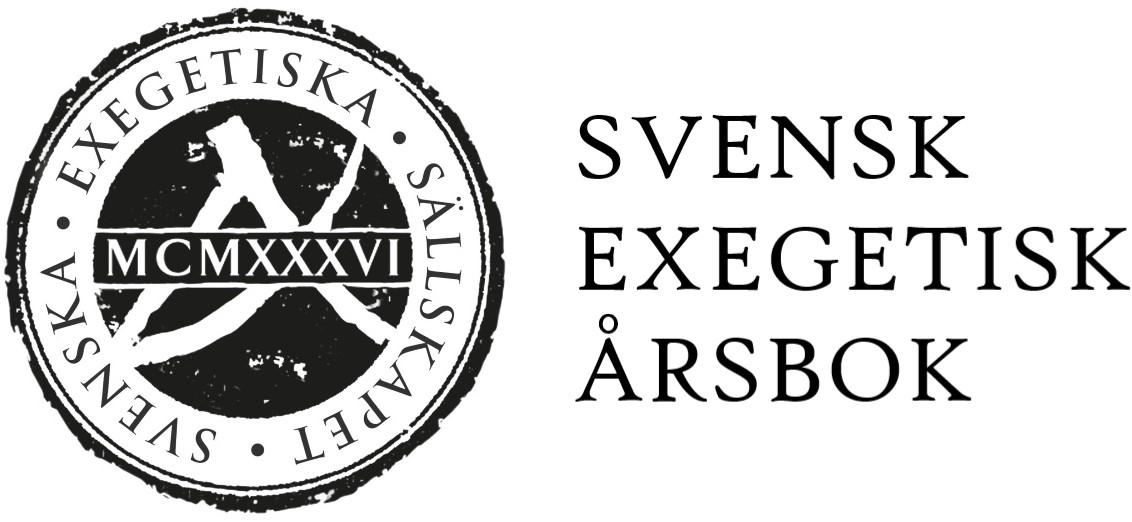Förordet och Ordet i Luk-Apg
DOI:
https://doi.org/10.58546/se.v77i1.15526Abstract
This article discusses the relationship between the author’s use of ὁ λόγος “the word” in the preface to the Gospel of Luke and his further use of it in the Gospel and Acts. Does his use of this phrase in the preface reveal that the author bears in mind his use of the same phrase in Acts? My thesis is that the use of the phrase ὁ λόγος “the word” in the preface presupposes the use of the same phrase in Luke- Acts.
In the first part I discuss the use of ὁ λόγος τοῦ θεοῦ “the word of God” and its abbreviated form ὁ λόγος “the word” in the Gospel of Luke. The result is as fol- lows. The author does not emphasize the dynamic or progression of the word of God. Instead he emphasizes two kinds of hearing of the word, those who hear and follow the word on the one hand and on the other hand those who hear without following. Luke bears in mind the critical situation of his readers but nothing indicates that he alludes to the progression of the word of God in Acts.
In the second part I discuss the account of the word of God in Acts. Here the author explains and defends where the word of God moved and why. The word is a progressive one, moving from Jerusalem to the end of the earth. However, its progression also crosses borders, both culturally and ethnically. In the narrative of Acts the word moves from Jewish particularism to inclusive universalism, but not without resistance from the Jews. As a consequence the word is readdressed from the Jews to the Gentiles. The narrative in Acts ends with an open door to a pure mission to the Gentiles. It means that the redemptive historical principle—“Jews first and then the Gentiles”—has come to an end.
In the third part I discuss the implications of the author’s intention in the pref- ace to defend the word, which attends to the reader’s uncertainty about the words of guidance he has received. It is likely that the readdressing of the word created a need for the justification of both the word as such and of its way from the Jews to the Gentiles. The author assures his readers that he has the credentials to defend the word and its way. He has since long had the chance to review and carefully acquaint himself with all possible traditions and therefore is competent to write a narrative about the origin of the word, its way and outcome, that can provide his readers with the certainty they need.
The conclusion of my investigation is that the author in writing his preface to the Gospel of Luke about the tradition and reception of the word bore in mind not only the Gospel story but above all the story about the progression of the word.
Downloads
Published
How to Cite
Issue
Section
License
Copyright (c) 2012 Lennart Thörn

This work is licensed under a Creative Commons Attribution-NonCommercial-NoDerivatives 4.0 International License.






